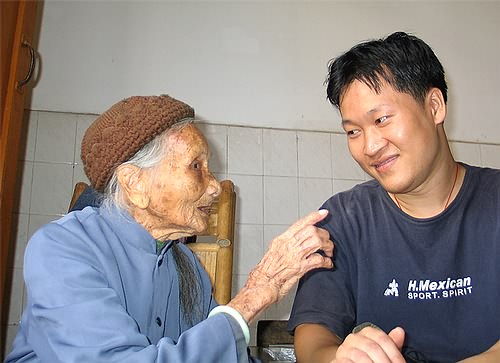|
|
Shanghai Elderly People Lack Companions
Xinhuanet
October 21, 2004

"Google" Image
More than a quarter of the city's residents over the age of 60 live by themselves or in a household consisting only of seniors, the Shanghai Civil Affairs Bureau said yesterday.
The bureau was trying to point out the problems many locals face that a growing number of seniors don't have anyone to look after them. Traditionally, elderly Chinese would live with their children, but like many customs, that is changing with the country's development and opening to foreign ideas.
The bureau said 709,600 locals over the age of 60 live without younger companions, accounting for nearly 28 percent of the city's 2.54 million senior residents.
Just over 23 percent of those people live alone, and about the same percentage are over the age of 80.
To make matters worse, 11,500 seniors live with disabled children or grandchildren under the age of 18, the bureau said.
"Ensuring their safety, daily life care, as well as the mental health of these groups of seniors is essential to help provide them with happiness in their old age," said Sun Pengbiao, deputy director of the Shanghai Research Center on Aging.
He said about 16 percent of seniors living without younger companions require someone to go to their houses on a daily basis to make sure they are okay and more than 22 percent need some forms of mental consultation at least once a month.
To meet the demands of this sector of the population, the city government is urging all local communities to ensure seniors get the care they need, the bureau said.
"We will try to attract more volunteers, who can maintain regular communication with one or several old people," Sun said.
|
|



